The extension endeavors towards enhancing adoption of improved agricultural technologies of the Project are of various categories. Out of these result demonstration on improved technologies of cultivating selected crops is the core and remaining endeavors are supporting for making successful and productive agriculture.
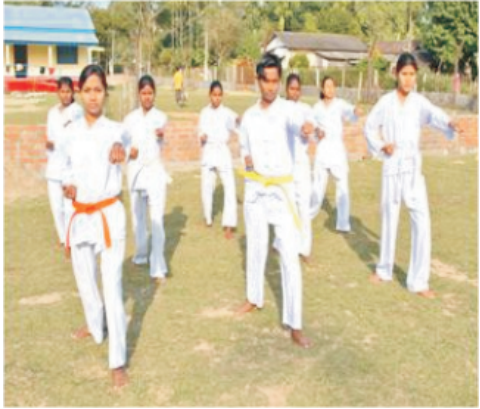
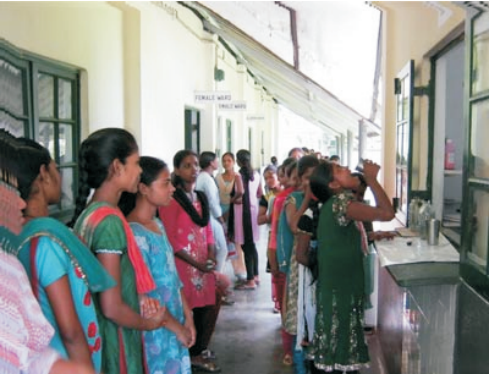
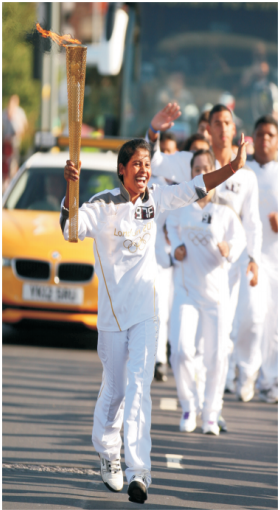
Pinky is a community Coach at Barbaruah Tea Estate as part of the International Inspiration Sports For Development (IIS4D) program of which UNICEF is a global partner. Pinky Karmakar is an adolescent girls club member. She was selected amongst few in the country to represent India at the London Olympics in 2012. Community Health for Advancement Initiatives (CHAI) in Dibrugarh & Tinsukia Districts The CHAI Assam is a corporate social responsibility project of Tazo Tea being implemented by Mercy Corps in collaboration with the Indian Tea Association (Kolkata). Working in Dibrugarh and Tinsukia since 2007, CHAI Assam has created a niche among different stakeholders directly or indirectly related to Tea. The goal of CHAI Assam is to "To diversify and integrate economic opportunities on tea estates in the Dibrugarh/Tinsukia districts of Assam"
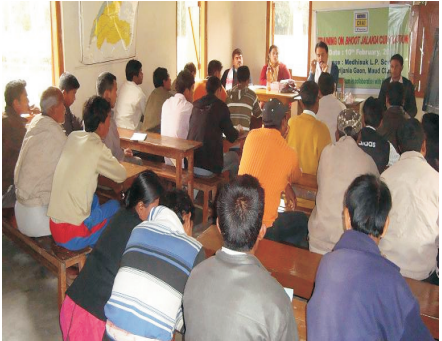
CHAI is a people oriented development program implemented in eight tea estates with 84 labour lines and 36 periphery villages. The total population of its target area is 52990.
The 'Family Welfare Education Project' of ITA was revived in Dooars Branch Indian Tea Association with the implementation of the UNFPA/ILO assisted project in the year 1982. The project aimed at enlisting the participation and involvement of individual member tea estates of Dooars Branch of ITA in promoting family welfare programme among the plantation workers and their families.
The objective of the programme were:
-to achieve a couple protection rate in significant percentage.
-to increase the proportion of users of modern spacing methods viz. Nirodhs, lUDand Oral pills.
-to reduce the infant mortality rate by full coverage of all children by immunization and by improved management of diarrhoeal diseases and to reduce the maternal mortality.
-to decrease parasite infestation.
-to increase environmental sanitation facilities.
-to disseminate the result of project implementation to tea plantations in other states.
A significant feature of the Project is that it involved the local garden population to fulfil its various objectives. Special mention can be made to Mothers' Club which actually comprised of few respected and knowledgeable women of the garden who were trained to disseminate information and motivate the workers to adopt various safety measures relating to health.
Later when the Family Welfare education Programme came to an end, the Tea Board favoured the Associaton with financial assistance to continue the programme in DBITA. The Programme was taken up in DBITA member gardens from 1997. Now, the Tea Board is still providing financial assistance to DBITA for continuing the Family Welfare Education Programmes in its member gardens in Dooars.
The Field Supervisors of FWEP, DBITA, maintains constant rapport with the government health department at the District level and block level as also with the Medical Officers and other health department staff at all the member tea gardens as well as the members of Mothers'club and Steering Committees to promote, conduct and co- ordinate various health related programmes, seminars and workshops from time to time. The major activities undertaken by the Family Welfare Education Programme are as follows:
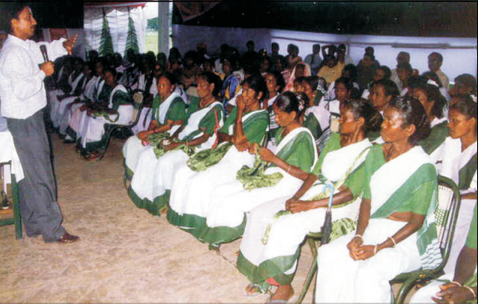 The Association after an in-depth study, framed an Incentive Scheme on Family Welfare for acceptors and promoters as well as to the non-working spouses of workers. This incentive scheme is over and above the cash incentives provided by the State Government.
The Association after an in-depth study, framed an Incentive Scheme on Family Welfare for acceptors and promoters as well as to the non-working spouses of workers. This incentive scheme is over and above the cash incentives provided by the State Government.
It deserves to be mentioned here that during the period between April 2011 to March 2012, the project achieved 1263 acceptors to convert in permanent method of sterilzation.
As regards, Universal Immunization & Pulse Polio Immunization, during the above-mentioned period, the coverage achieved in the member gardens of DBITA was almost 100%.
As for acceptors of spacing methods during the year 2011-2012, the number of acceptors of IUD were 1298, Nirodh were 4985 and Oral Pill were 6245. It needs to be mentioned that with active persuasion with different Government and Non-Government agencies on health care issues, Dooars Branch Indian Tea Association, has been able to achieve success e.g. setting up of Mobile Medical camps organized by MANT in different member tea gardens viz. Huldibari, Rheabari, Katalguri, Mogulkata, Red Bank and Surendra Nagar under Dhupguri Block, as a result of which, a sizeable number of resident populations have been benefitted in terms of X-Ray, pathological tests and requisite medicines.
 29.07.2015
29.07.2015
We request all the members to send your current contact. Read More
 18.06.2015
18.06.2015
We request all the members to send your current contact. Read More
 06.05.2015
06.05.2015
We request all the members to send your current contact. Read More